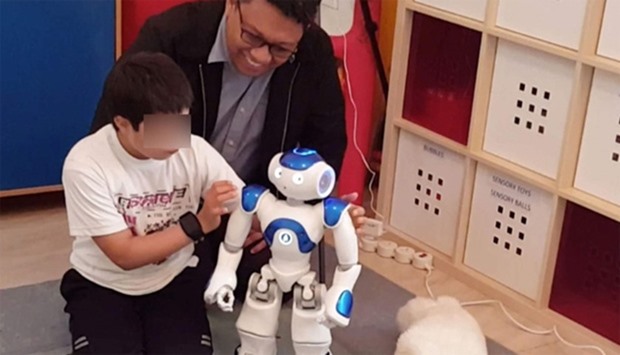The team has launched collaborative projects with local special needs centres to pilot-test social robots as assistive tools to complement current interventions.
Led by Qatar University College of Engineering's (QU-CENG) Department of Mechanical and Industrial Engineering associate professor Dr John-John Cabibihan, the team includes Cleveland Clinic-US and Case Western Reserve University clinical assistant professor and paediatric neurologist Dr Mohamed Aldosari, and Chinese University of Hong Kong's Department of Educational Psychology assistant professor Dr Catherine Wing Chee So.
Dr Cabibihan explained that social robots are being used to target a variety of behavioural challenges commonly found in children on the spectrum. "With a robotic agent, we are able to design engaging activities for children that appear not only as fun games but are aimed to enhance specific skills.”
Dr So observed that in general, children with autism prefer robot-like toys to non-robotic toys and human beings. "This is partly because a social robot does not have all the facial features and expressions of human beings; thus, using a robot avoids sensory overstimulation and distraction in children on the spectrum. We are currently teaching children to use gestures to express their feelings and emotions to reduce their challenging behaviours.”
Dr Aldosari stated that the results of the pilot project are promising and it aims to provide the framework and infrastructure to develop and test different paradigms for the use of social robots as a teaching and training aid for children with autism spectrum disorders.
"We look forward to using complementary innovative technologies with social robots such as eye and emotion tracking as well as automated language analysis, to develop cost-effective and objective early diagnostic and intervention solutions.”
CENG dean Dr Khalifa al-Khalifa said that the research highlighted CENG’s core role in advancing the know-how and developing technology for the greater good of society.

